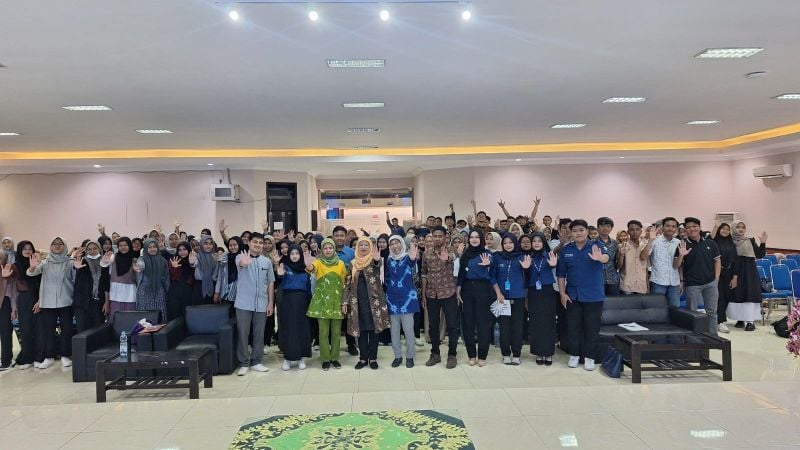
The Commissioner of the National Commission on Violence Against Women together with the ranks of the PPKn S-1 study program and the PPKn Study Program Student Association together with students from the PPKn environment.
The activity was attended by 161 Study Program students The theme of this S-1 PPKn is "Mainstreaming Gender in 21st Century Education: Realizing the SDGs of Quality Education and Gender Equality." The aim is to increase students' awareness and understanding of gender issues, especially in the educational context, as a foundation for the formation of their character and understanding.
Alimatul Qibtiyah, professor and Commissioner of the Indonesian National Commission on Violence Against Women, was present as a resource person. He explained the importance of understanding gender in the context of 21st century education. According to him, quality education is not only seen from the academic aspect, but also from how education can support gender equality and combat stereotypes.
Gender stereotypes are views or general assumptions regarding the characteristics, roles and responsibilities assigned to men and women. The professor at UIN Sunan Kalijaga revealed that this stereotype often results in injustice, both in education and in other social life.
There are many people who believe that the different nature of the roles and responsibilities of men and women are carried out in accordance with needs, opportunities and commitments, and local cultural appropriateness. By nature, women are better trained to endure pain than men. This view is clearly unfair and can limit individual potential.
A way that can be done to overcome stereotypes that have been built up in society is by gender mainstreaming. Gender mainstreaming is the process of integrating gender perspectives in all aspects of policies, programs and activities.
He emphasized the importance of gender mainstreaming in education, where every student, both male and female, must have equal opportunities to learn and develop.
"Quality education must be able to promote gender equality, so that all students feel valued and supported, regardless of their gender," he said. "Through gender mainstreaming, an inclusive and fair learning environment will be created," he added.[]
***
Reporter: Fatimah Najmus Shofa (FBS)
Editor: @zam*
Photo: UNESA PR Team
Share It On:






